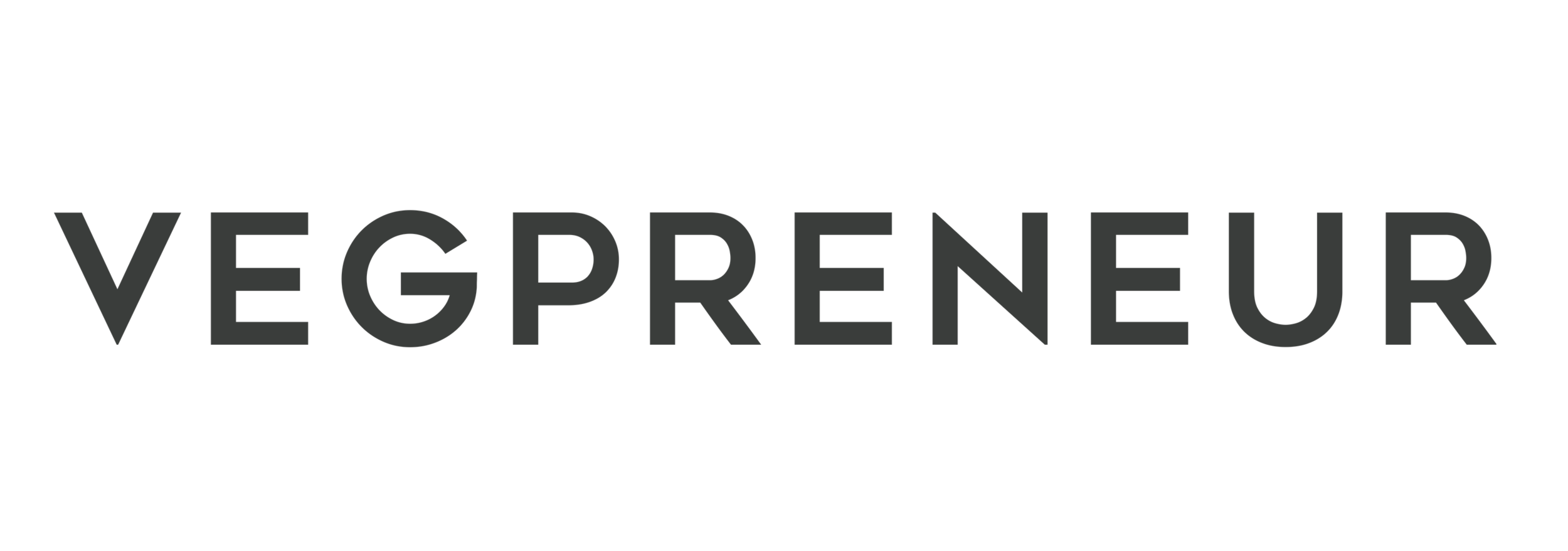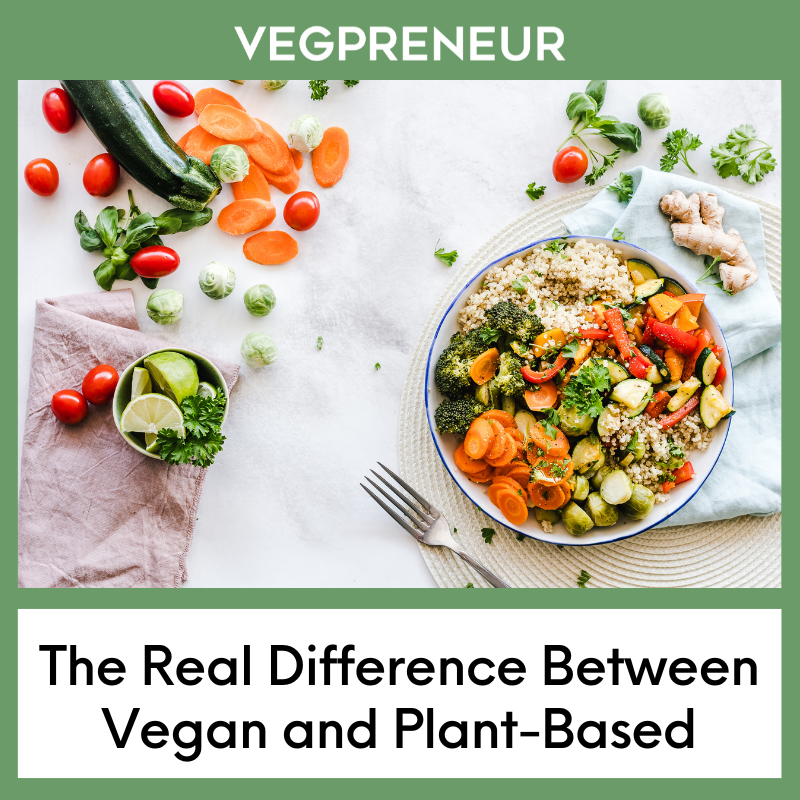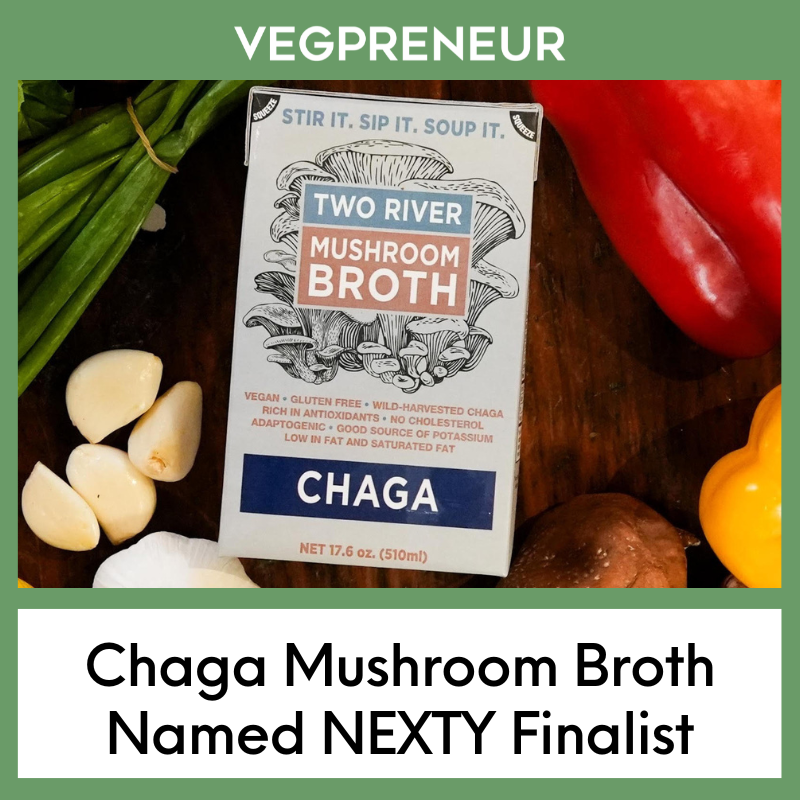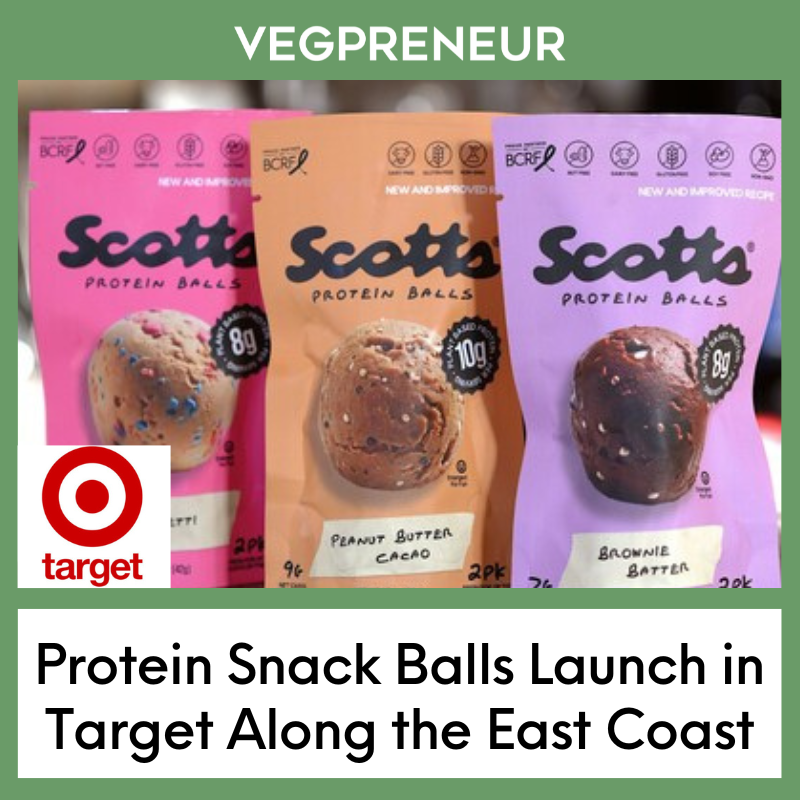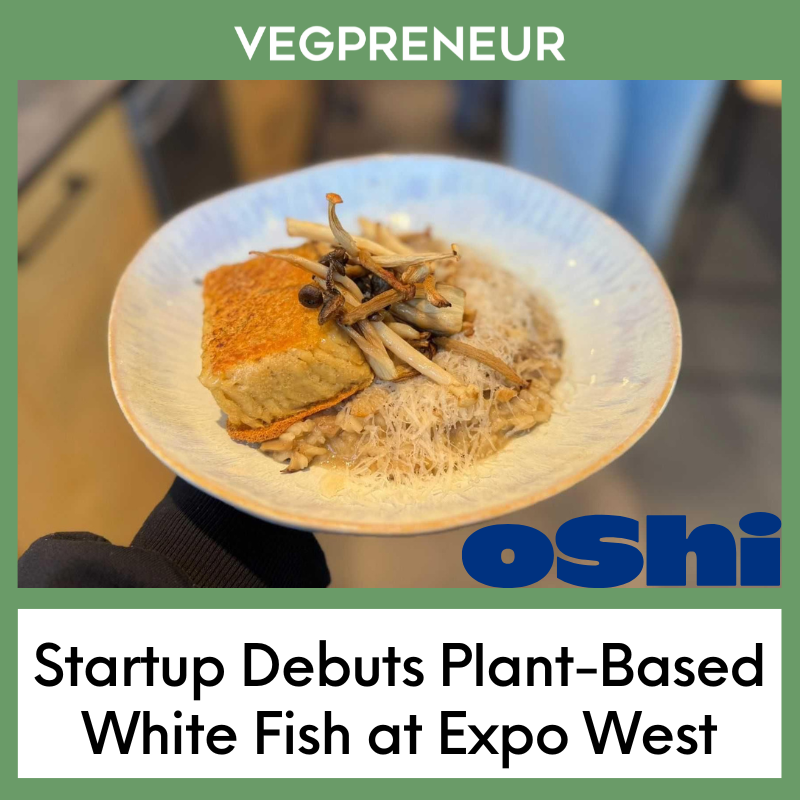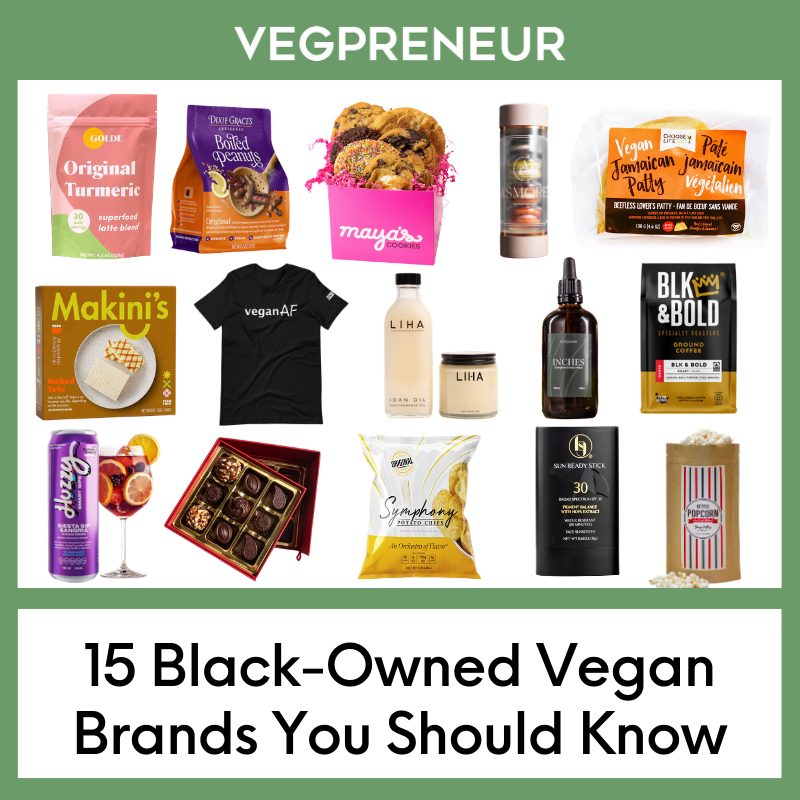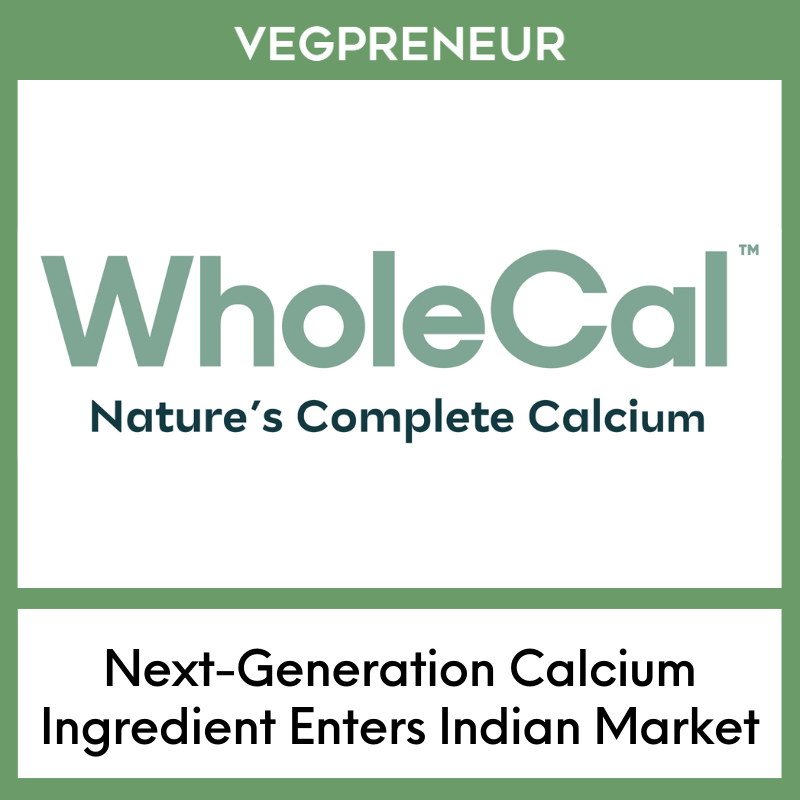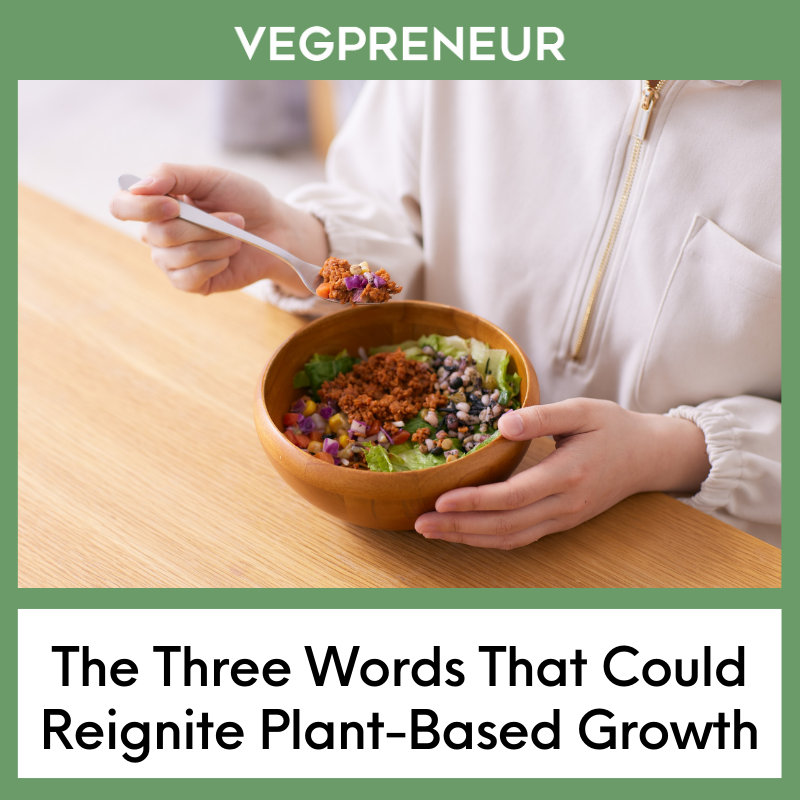The Real Difference Between Vegan and Plant-Based
Written by The VEGPRENEUR Team
Ever wondered what really separates “vegan” from “plant-based”? Understanding the difference can help brands communicate more authentically and consumers make more conscious choices.
As the demand for ethical, sustainable, and health-driven products continues to rise, the terms vegan and plant-based have become mainstays in modern marketing. From food packaging to beauty labels, both words signal conscious consumption and innovation. However, while they’re often used interchangeably, they carry distinct meanings—and for brands in the growing plant-based economy, that distinction is more important than ever.
Vegan: An Ethical Lifestyle Choice
“Vegan” represents more than just what’s on a plate—it’s a lifestyle rooted in compassion, ethics, and animal welfare. A vegan individual avoids all animal products and by-products, including meat, dairy, eggs, honey, gelatin, leather, wool, and silk. They also typically seek out cruelty-free products, avoiding anything tested on animals.
For many, veganism is motivated by the belief that animals should not be exploited for food, clothing, or any purpose. It’s a commitment that often extends beyond diet into personal care, fashion, and even travel choices. Brands that identify as vegan must meet these high ethical standards to maintain credibility—transparency is key.
A truly vegan product doesn’t just contain plant-based ingredients; it also ensures no animal testing took place at any point in production. That’s why certifications like Vegan Action, Leaping Bunny, or PETA’s Vegan Approved seal can be powerful trust signals for consumers seeking authenticity.
Plant-Based: A Focus on Health and Nutrition
While veganism is an ethical framework, plant-based is primarily a dietary approach focused on health, nutrition, and sustainability. A plant-based diet centers around whole, minimally processed foods from plants—like fruits, vegetables, grains, nuts, seeds, and legumes.
Unlike veganism, the term “plant-based” doesn’t necessarily mean 100% free of animal products. Many people identify as plant-based because they primarily eat plants but may occasionally include animal-derived foods. The motivation often stems from personal health goals, environmental concerns, or a desire to reduce rather than completely eliminate animal consumption.
For example, a brand marketing a “plant-based protein bar” may highlight that its main ingredients come from plants—such as pea or rice protein—without making a vegan claim. The focus is on nutritional benefit and performance, not ethics.
Why the Difference Matters for Brands
In today’s crowded marketplace, using these terms correctly is essential for credibility. Mislabeling or blurring the lines between vegan and plant-based can lead to consumer confusion—or worse, accusations of greenwashing.
A “vegan” label communicates an ethical promise: no animal ingredients, no animal testing, and an alignment with cruelty-free values. A “plant-based” label emphasizes what the product contains—primarily plants—and its benefits for health and sustainability.
For example, Oatly markets itself as a vegan brand with a strong sustainability message, while Impossible Foods uses “plant-based” to appeal to flexitarians and meat reducers who want a similar taste experience without going fully vegan. Both approaches are valid—they just speak to different consumer motivations.
Finding the Right Language for Your Brand
For founders and marketers, clarity is everything. When deciding how to position your brand:
Know your audience. Are you targeting ethical vegans, health-conscious consumers, or eco-minded flexitarians?
Be transparent. If your product is vegan, highlight it proudly. If it’s plant-based but not entirely vegan, explain what that means.
Align messaging with mission. A brand built on wellness should emphasize the health benefits of being plant-based, while a brand built on compassion should use vegan terminology.
The Bottom Line
Both vegan and plant-based products contribute to a more sustainable future. But understanding—and respecting—the difference between the two helps brands communicate with integrity and consumers make informed choices. As the plant-based economy evolves, authenticity will remain the most valuable ingredient for growth.
Looking to take your business to the next level?
Become a VEGPRENEUR member today to access industry-leading events, mentors, resources, and a global community of innovators!
